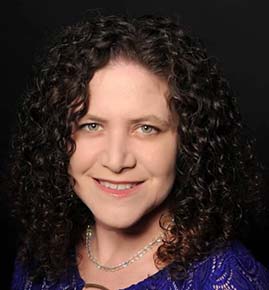 By Elisa Friedlander
By Elisa Friedlander
Repost of her Blog on 12/08/18
Talk about the 1990 Americans with Disabilities Act (ADA) has surfaced since the recent death of President Bush who, despite opposition from his staff, signed the ADA into legislation. The civil rights law, prohibiting discrimination against persons with disabilities, moved forward because of the disability advocates who marched, sat, spoke and fought for it in the first place. Still, nearly three decades later, people living with disabilities know the struggle still exists.
I recently caught up via email with a local friend I hadn’t seen in weeks. “I assume you’re doing well, since you’re going to Arizona this weekend,” she wrote. A reasonable assumption, but not quite on point. Things have been hard–really hard–since a recent RSD/CRPS spread which, for now, I’ll sum up with own my initial response: Are you kidding me?!! Despite my body’s turmoil, I wanted to attend to a part of my life separate from the pain, so I made the choice to travel.
We find the cheapest flight available, which means changing planes in LA and no checked luggage, but it’s doable. We head down south to visit family in Arizona, family that is unable to come our way due to their own medical issues. After the first of two short flights, we de-board (my wife, of course, carrying the physical load). Just outside the terminal gate we learn where to go for our transfer, down the short walkway and to the shuttle, easy peasy. Upon arrival, we breathe easy knowing our second plane gate is just ahead.
We walk through the doorway to…what?!! A sense of confusion; imprisonment. Nothing but a huge flight of stairs leading up to our gate; no elevator or escalator in this closed-off space. Just a ridiculous amount of stairs, loads of people who seem to be skipping upward, and our own dropped jaws. Still, I keep looking ahead like it’s an open fridge and I’m waiting for something other than yogurt and condiments to appear.
Feeling like the world is becoming less and less accessible to me, I realize I have a choice… climb the stairs with the body I inhabit, or miss our connecting flight. Despite the inevitable flare-up it will cause, I choose the stairs. I want nothing more than than a bed right now. What I don’t want is to hang out at the airport in severe pain, surrounded by uncomfortable chairs and human beings.
So, up the stairs we go, and with each step I’m aware that if somebody hadn’t offered to carry our bags, this wouldn’t be an option for us. (My wife’s loaded arms are usually fine, but we’re not about to add stairs into the mix.) More so, I’m aware that this “choice” wouldn’t even exist for many people with disabilities, and it’s entirely possible that I–that any of us–will be included in this minority subgroup one day. And lastly, I’m aware of these thoughts going through my mind:
We should have paid the sixty dollars to check our bags.
Then, No! We have the right to make the choice we did. Our system worked for us; it worked until we ran into a societal barrier.
Should I have gotten a wheelchair? I usually take mine (or use one at the airport).
Then, again, No! As a whole, society fails to recognize that a significant mobility problem does not necessarily equate to wheelchair use. Disability has a range of presentations that require accommodation and need to be taken into consideration.
Should I have asked if there are any stairs I’ll need to use?
No! Information should have been given to us. The fact that there were stairs and no nearby elevators should have been noted, and alternatives should have been offered upon the scheduling of the flight or–at the very least–at the location itself.
People with disabilities frequently run into these obstacles, and some are so subtle (yet impactful), able-bodied folks usually don’t notice. My recent experience (one of too many to count) highlights the importance of understanding disability as a societal–versus a personal–problem.
Sure, I can’t lift a suitcase (these days I can’t even unzip one without spell-binding pain), and daily living activities (like getting dressed) are increasingly hard, which is undeniably concerning. This means I have a personal responsibility to figure out how to make things work for me. So, I deal with my feelings about it (we should all make space for that); I do some problem-solving and seek out resources; that’s on me. (Well, me and my bank account; being disabled is expensive.)
Once out in the world, however, my body and I are in a relationship with the structures of society. I may be in a ridiculous amount of pain, but I’m only disabled when an extremely heavy door at a public facility lacks an automatic opening. I’m disabled when the pharmacist forgets to put the “easy-open” lid on my medicine bottles, or when the City Council doesn’t make the connection between disability and transportation needs.
When in my wheelchair, I’m disabled if the aisles in a store are too narrow for me to get through. Other days, I’m disabled when I sit in doctor’s offices, classrooms, or public venues which have only plastic or metal chairs, or chairs that have no back or arm support. These are all physical barriers and with them, I’m disabled. Without them I’m enabled, like everyone else, to engage in activities.
In the comfort of our home, within the context of my meaningful relationships, and in my own psycho-spiritual world, disability is personal. Deeply personal. Out there in the world, however, it’s a societal problem, one that requires both access and attitudinal adjustments.
It’s been twenty-eight years since the enactment of the ADA. A lot has been accomplished, and we have much more to do. This is a minuscule peek into my world, but there are millions out there who are entitled to a better society. Let’s prioritize the promotion of awareness and continue advocating for disability rights (aka civil rights) in big ways (think: politics) and small ways (think: talking to your local businesses, public entities, and your friends).
Every one of us eventually will–in one way or another–become disabled, even if only by the natural process of aging. For now, these are steps we can all take.
